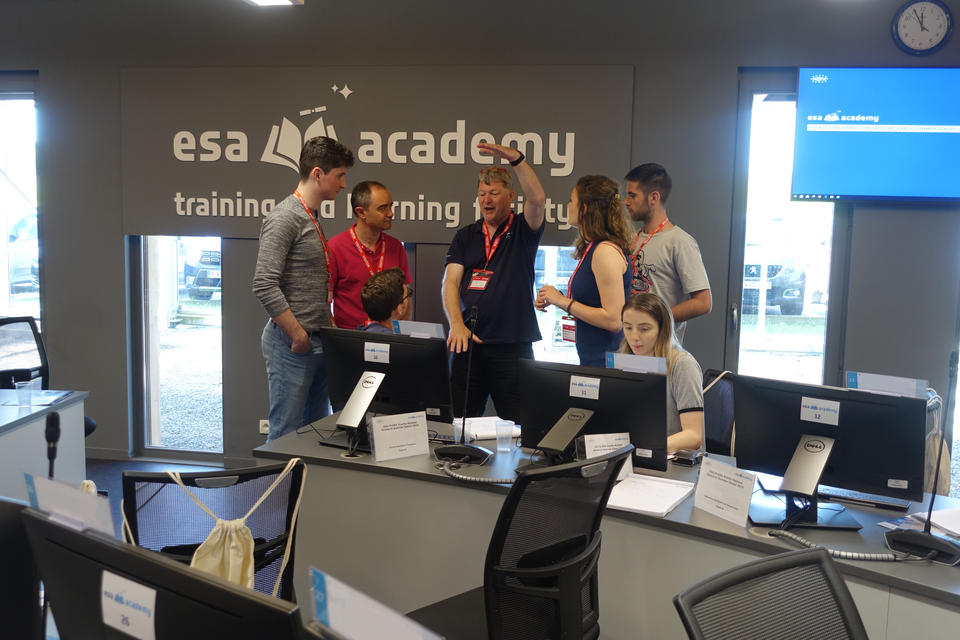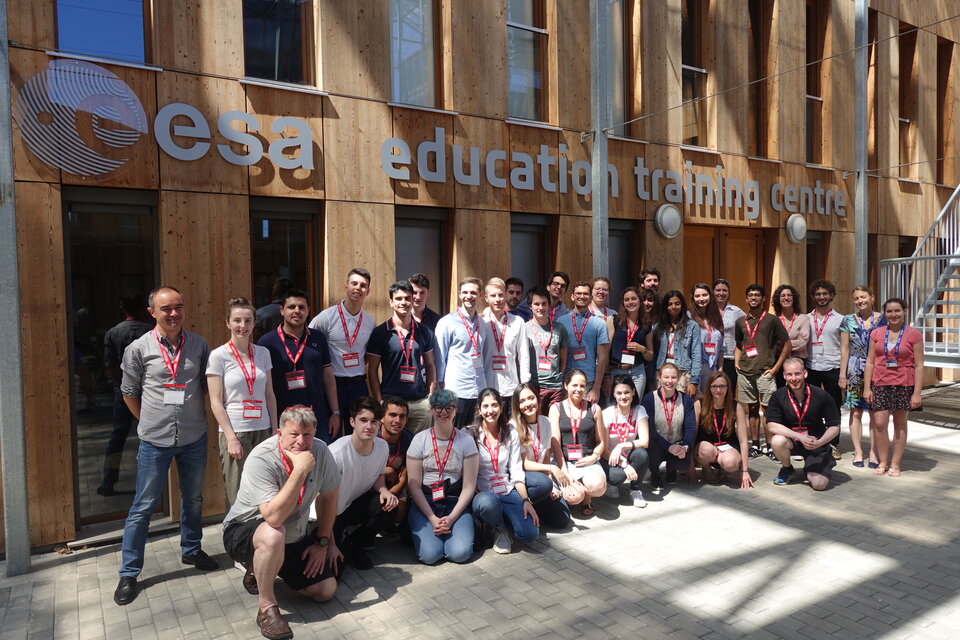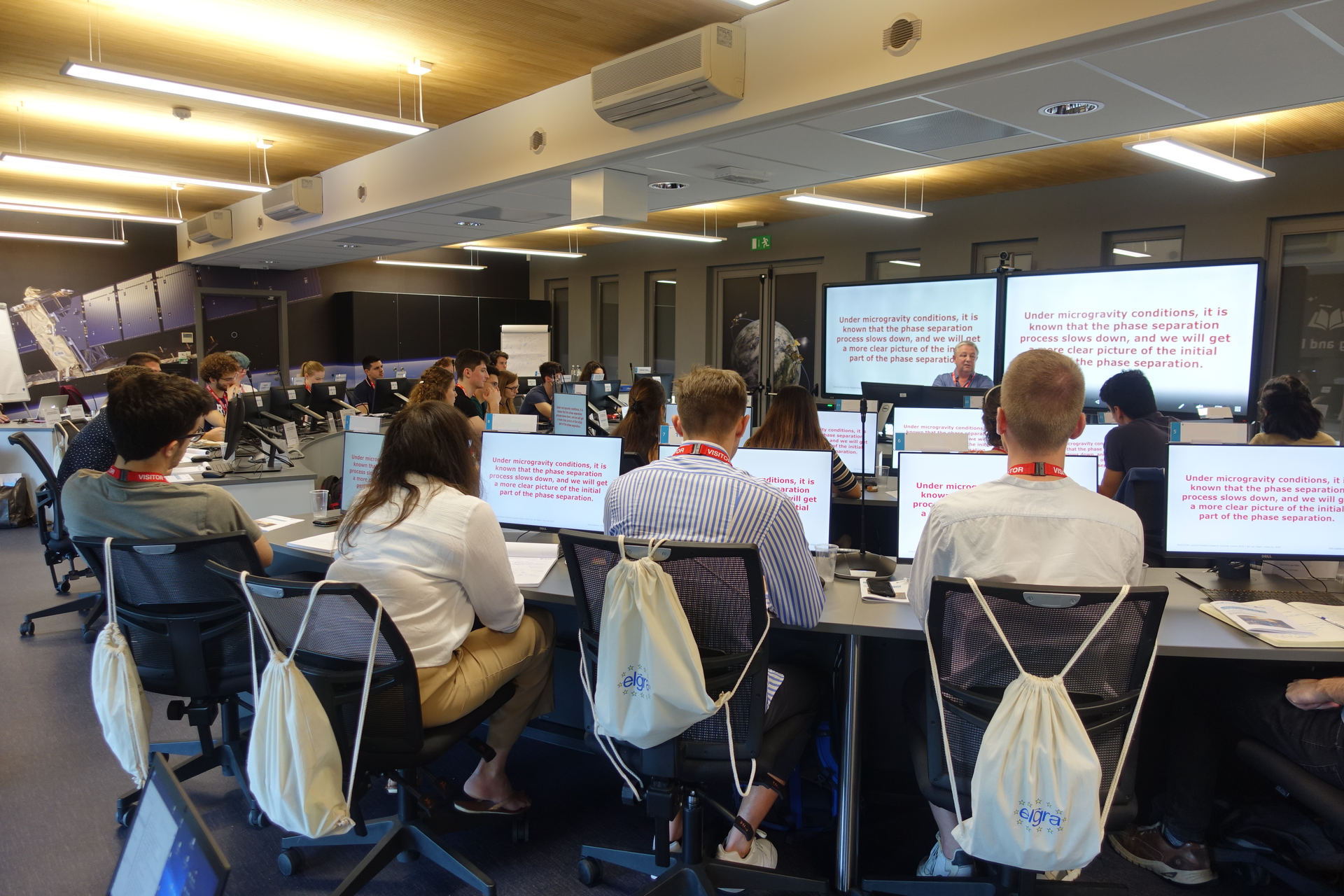ESA and ELGRA team up to run Gravity-Related Research Summer School 2019
ESA’s Education Office and ELGRA (European Low Gravity Research Association) have once again collaborated to run their highly respected ESA/ELGRA Gravity-Related Research Summer School. 30 university students from 13 different ESA Member States attended this 2019 edition from the 24th to 28th June, hosted at the ESA Education Training Centre, ESEC-Galaxia, in Belgium.
The Summer School’s goal was to introduce students to current research under altered gravity conditions; why is this of interest, and what are the benefits of gravity-related research? Leading the course were ESA and ELGRA experts from across Europe, ready to guide the students through this intense week!
To begin with, the students received an overview of different gravity-related research platforms, including centrifuges, drop towers, parabolic flights, and even the International Space Station! ESA Education offers opportunities to university students to perform their own gravity-related research experiments - Spin, Drop, Orbit, and Fly Your Thesis! - and these were suggested to the participants as potential future options. “The thing I most liked about this Summer School was that it gave me a bigger picture,” explained a Hungarian student from the Eötvös Loránd University. “I could understand how complicated it is to get to the actual experiment from an idea - but got the help and inspiration not to feel intimidated by it. Also, I could see how space research connects a variety of scientific topics - meaning that even though I study biology, I will have a lot of chances to connect my work to it.”

Next came a series of lectures on current research under microgravity and hypergravity in the fields of human physiology, life science, and physical science. This also included presentations from other students that had previously completed ESA Education Hands-On Experiment projects, to share their experiences with the summer school students.
Brimming with their newfound knowledge, the students were ready for a challenge. They were divided into small teams and tasked with devising their own ideas for gravity-related scientific experiments. A project management workshop helped them to develop their designs into achievable plans. This was coupled with the tips from the expert in their lectures featuring examples of research practices to follow, such as how preparation of solar cell active layers under microgravity conditions is undertaken. This was demanding work so some respite was offered when an ESA Research Officer joined the Summer School via videoconference to talk about the life cycle of an experiment performed on the International Space Station.
The pressure reached ramped up on the final day as each group took to the stage and presented their projects. A wide variety of topics were proposed, such as the effect of hypergravity on the permeability of endothelial cell membranes, and the production and agglomeration of ice in microgravity. A panel of ESA and ELGRA experts quizzed the teams on the scientific relevance of their experiments, their choice of platforms, and the feasibility of the project. This led to fruitful and enlightening discussions, and proved to be a valuable learning experience for the participants.
During the week the students also took the chance to visit ESEC-Redu to learn about its activities, and the Euro Space Center where they tried out different astronaut training simulators.

A British student from the University of Brighton wrote of their experience: “It was a privilege to spend the week learning first hand from experts and students in such a diverse multi-disciplinary team. Everyone was so kind, welcoming, inclusive, and generous in sharing their knowledge and expertise. I feel enormously grateful for all the laughter and fun we shared as a group. My only wish is that the Summer School could have lasted longer. This week opened my eyes to the idea that working in space science might be an attainable reality rather than just a dream.”
“The ESA/ELGRA Gravity-Related Research Summer School 2019 was an extraordinary and memorable experience,”added an Italian student from the University of Naples Federico II. “In less than a week, I learnt a lot of new things from many different fields and I had the unique opportunity not only to discuss scientific matters with experts but also to hear their stories and fragments of their lives thanks to their sincere will to transmit to us students their passion and enthusiasm for their work, in which they completely succeed. Furthermore, I met a lot of students from all over Europe: just in a few days, they passed from being strangers to esteemed colleagues and, more than all, good friends. Now that I am back in my country, I feel a bit nostalgic that this summer school has come to an end, but, at the same time, I am happy to have gained so much from that week, not only in terms of knowledge but also in terms of personal growth, special connections and friendships.”
To find more information about upcoming ESA Academy training opportunities, please check our current opportunities.
Contacts: tlp@esa.int, communication@elgra.org


